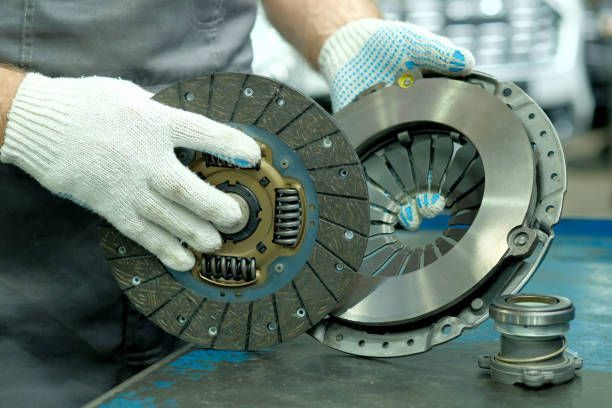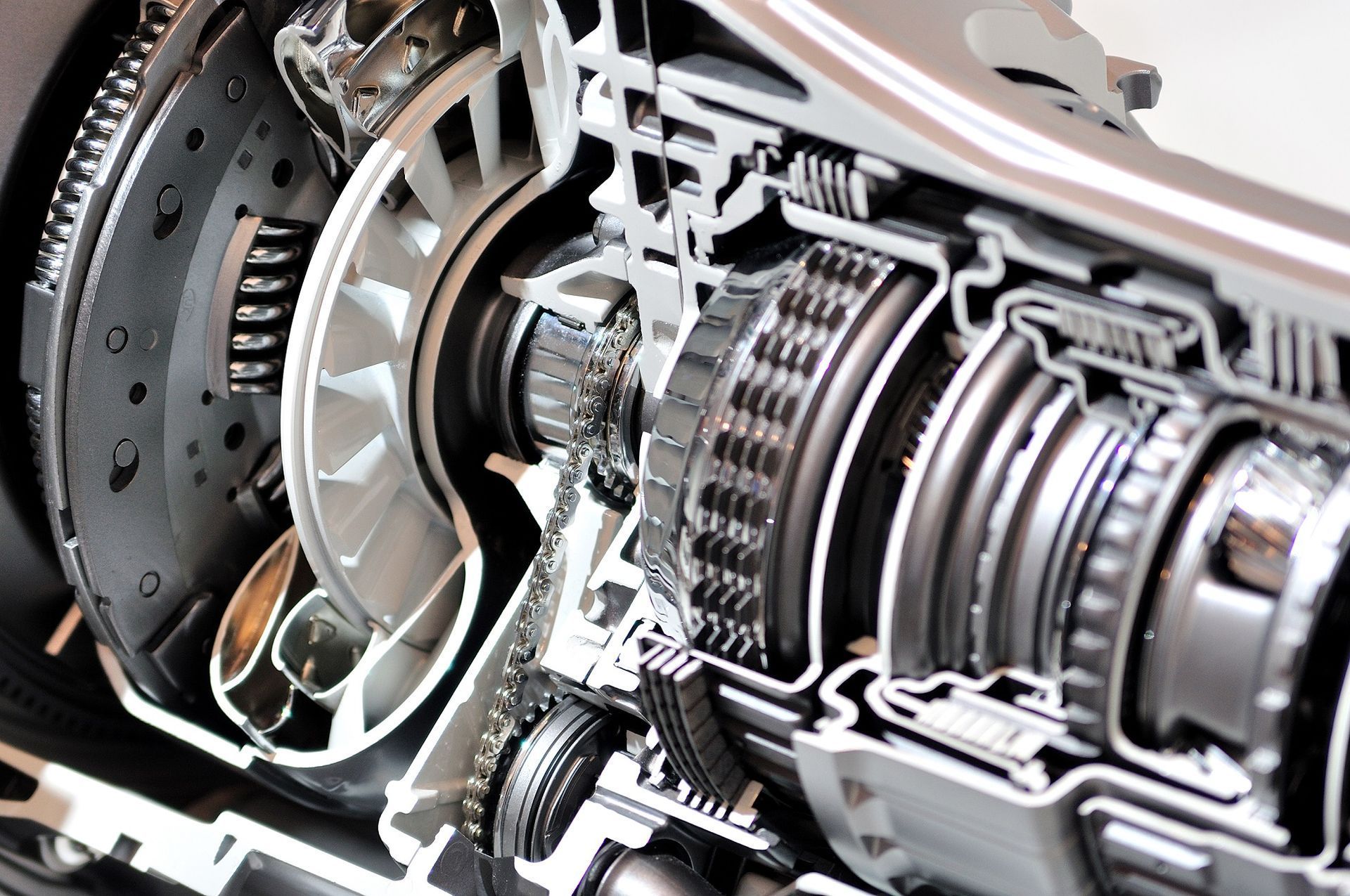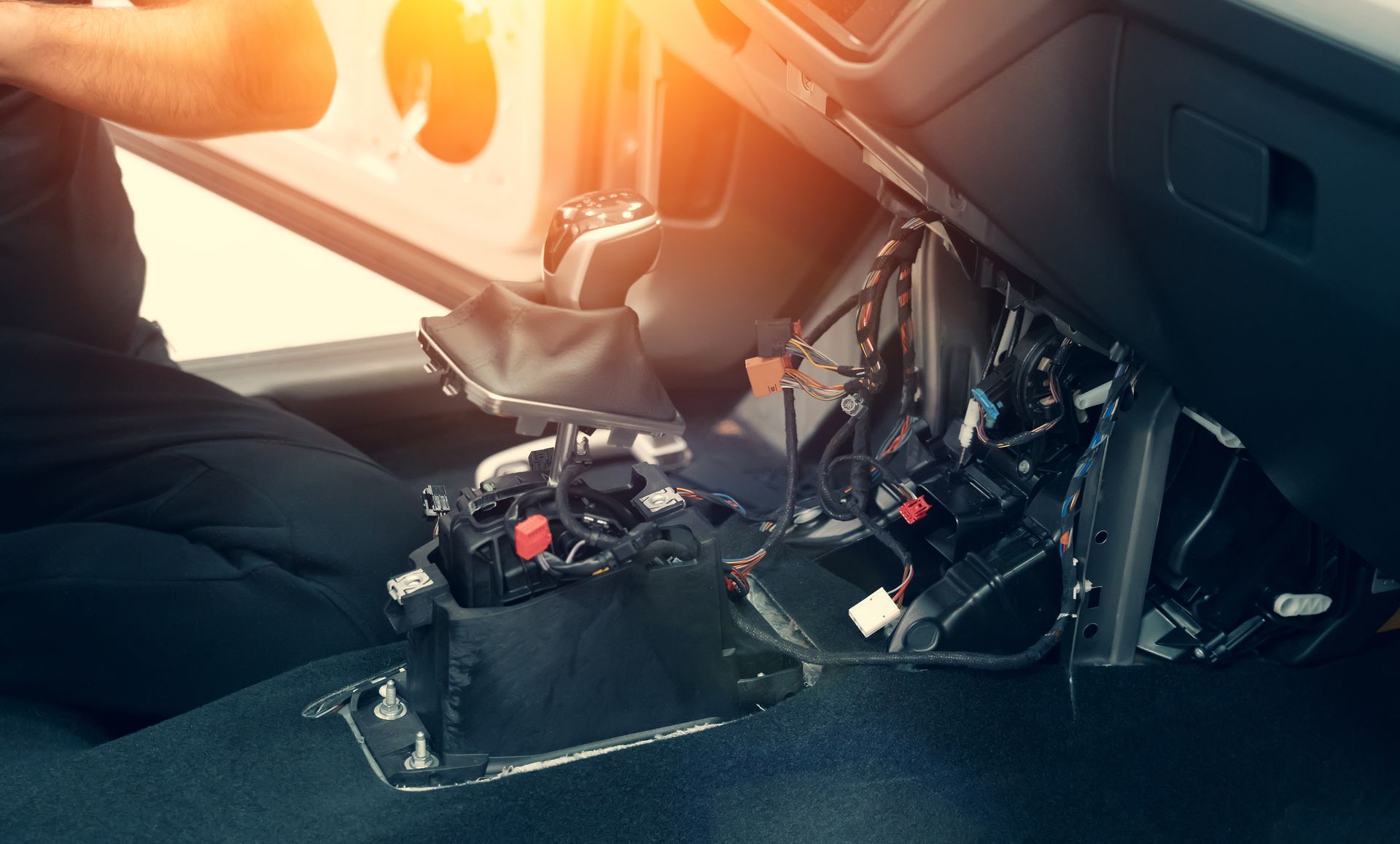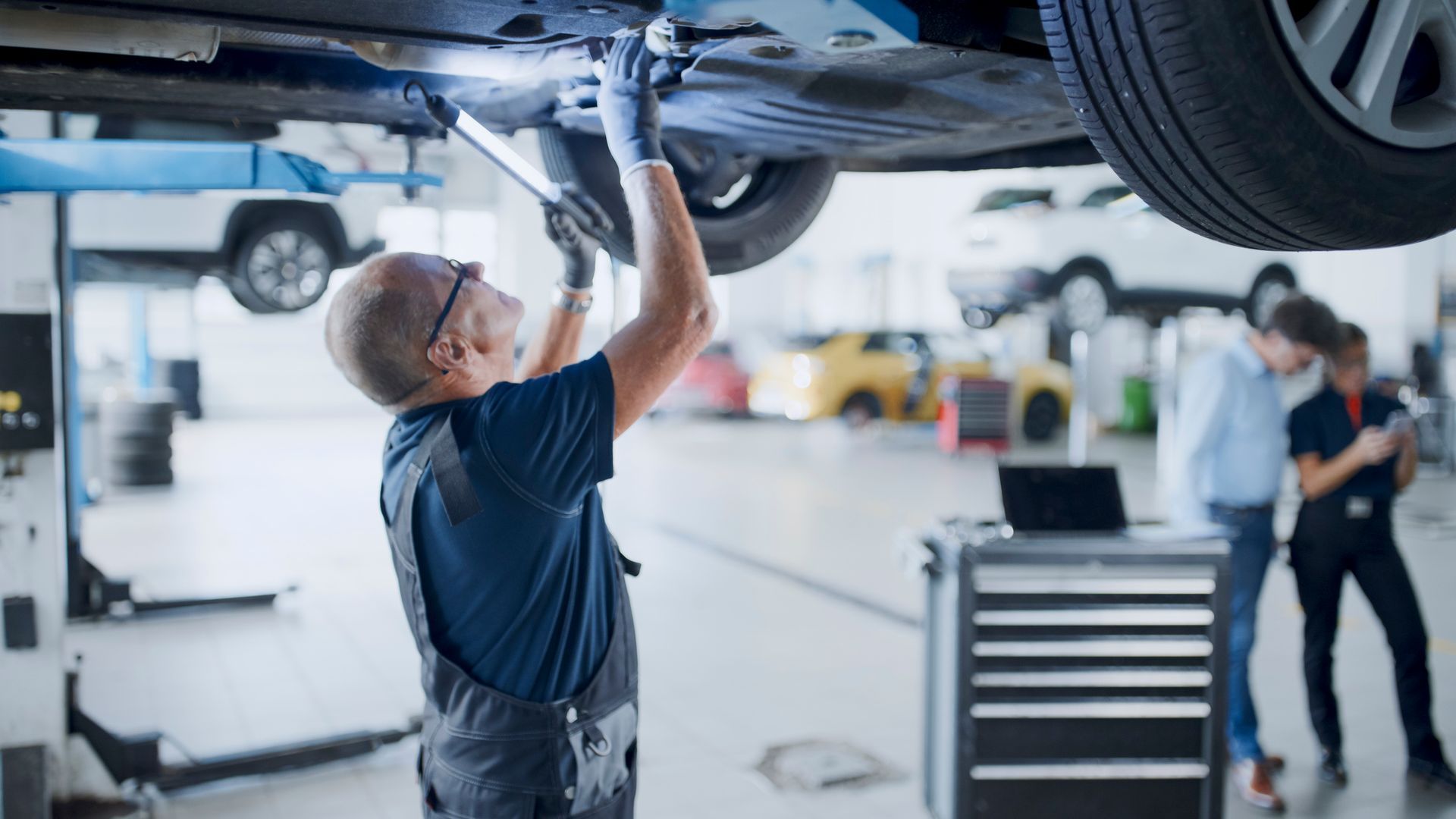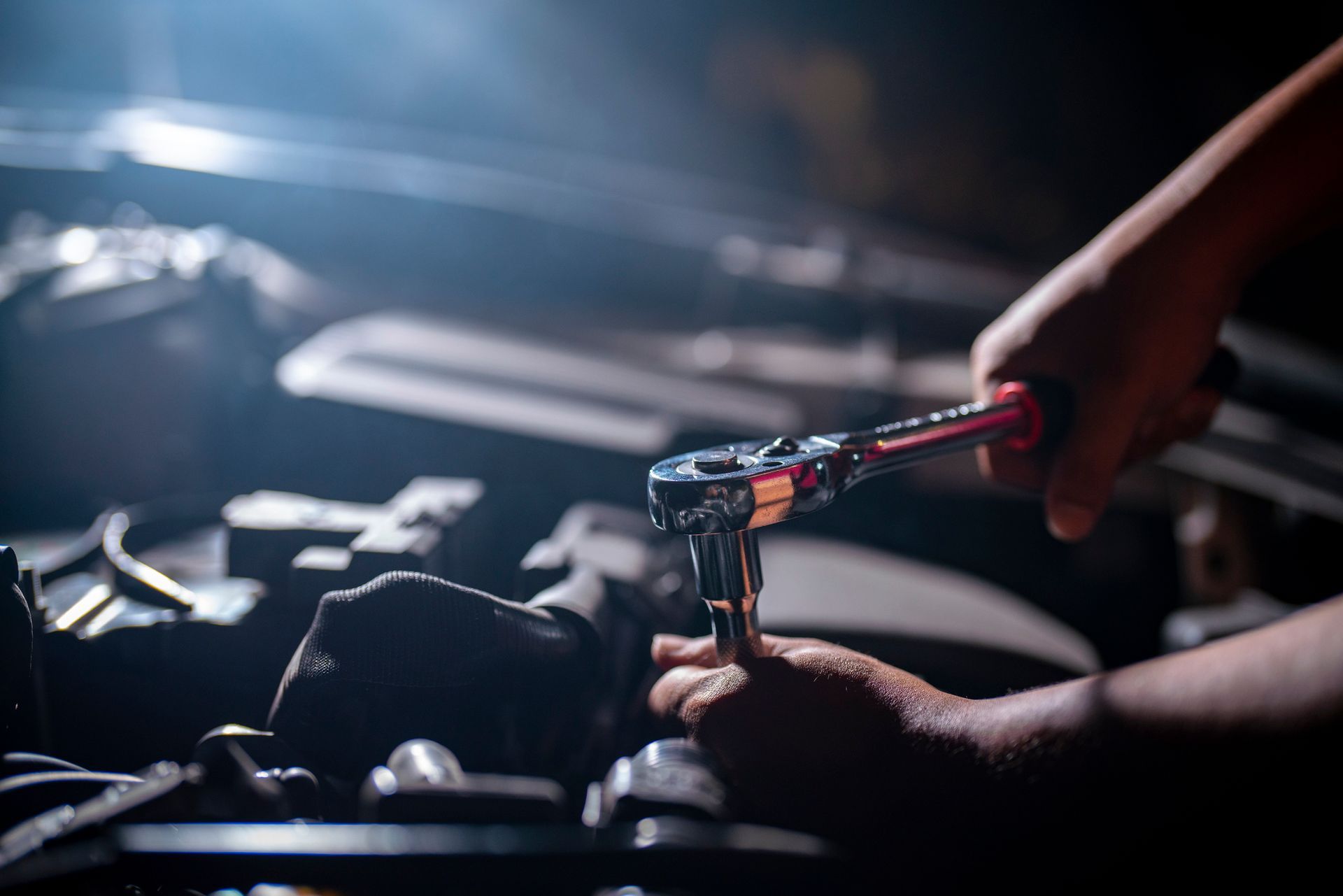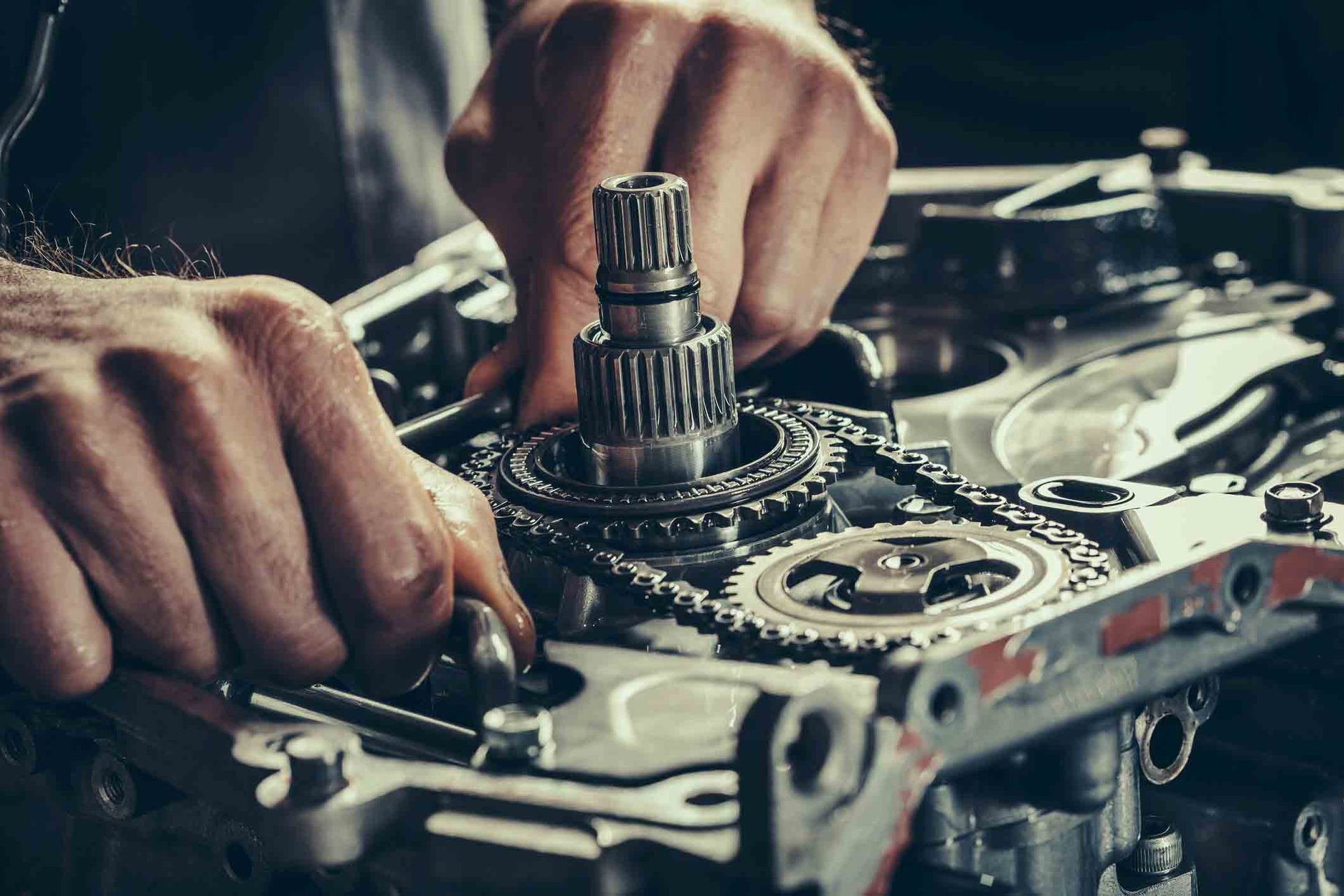Auto Brake Repair vs. Brake Replacement. Which One is Best?
Auto Brake Repair, What Does It Mean?
When you hear the term "brake repair," it typically refers to addressing minor issues that affect components within the brake system without replacing the entire assembly. Auto brake repair can include tasks such as:
- Replacing brake pads
- Repairing brake lines
- Fixing calipers
- Addressing minor leaks or fluid top-ups
- Resolving sensor errors
These repairs aim to restore the brakes’ functionality and safety without the need for complete parts replacement.
Signs You May Need a Repair
Here are some symptoms to watch for indicating it might be time for an auto brake repair instead of a full replacement:
- Squeaking or squealing brakes: Often a sign that brake pads need to be replaced or repaired.
- Slight vibrations during braking: Might mean uneven wear, which can be fixed by resurfacing rotors or replacing pads.
- Warning lights: Brake system indicators can signal the need for repairs that don’t require replacing everything.
- Reduced braking efficiency: Sometimes just a minor adjustment or fluid change solves the problem.
Benefits of Opting for Auto Brake Repair
Choosing repair over replacement when appropriate offers several advantages:
- Cost-effectiveness: Repairs generally cost less than full replacements.
- Speed: Repairs can be completed faster, getting you back on the road quickly.
- Extended parts life: Fixing smaller issues early can extend the lifespan of your brake components.
Auto brake repair is a great first step when minor issues arise. However, it’s important to know when a full replacement is necessary to keep your vehicle safe and functioning properly.
When Do You Need a Brake Replacement?
While auto brake repair can address many minor issues, some problems require complete brake replacement. Brake replacement means removing and installing new parts such as brake pads, rotors, calipers, or, in some cases, the entire brake assembly.
Common Scenarios Requiring Brake Replacement
Brake replacement is necessary if:
- Brake pads are worn below the recommended thickness.
- Brake rotors are warped, cracked, or severely grooved.
- Calipers are malfunctioning and cannot be repaired.
- Brake fluid has been contaminated, or the system suffers from prolonged neglect.
- Excessive brake pedal travel occurs, indicating worn components.
Ignoring these signs and delaying a replacement can lead to brake failure, putting you and others at risk.
How Brake Replacement Ensures Safety
Replacing worn or damaged brake components restores braking power and responsiveness. New pads and rotors, for example:
- Improve stopping distances, reducing accident risks.
- Eliminate noises and vibrations caused by worn parts.
- Restore proper hydraulic system pressure for consistent pedal feel.
At Bob’s Transmission & Auto Service, we recommend brake replacement only when necessary, ensuring you don’t pay for more than you need while prioritizing your vehicle’s safety.
Auto Brake Repair vs. Brake Replacement: Which One Should You Choose?
Understanding when to repair and when to replace your brakes comes down to assessing the severity of the damage and your vehicle’s specific situation.
Factors Influencing Your Decision
Brake pad thickness: Most manufacturers suggest replacing pads at 3-4 mm thickness. Above this, repairs might suffice.- Rotor condition: Minor grooves can be resurfaced, but major warping demands replacement.
- Vehicle age and mileage: Older vehicles with many miles may benefit from replacement as a long-term solution.
- Driving habits: Heavy city driving or towing often wears brakes faster, increasing replacement needs.
- Inspection results: Trust certified mechanics to inspect and recommend the best approach.
The Bob’s Transmission & Auto Service Advantage
Our expert technicians carefully inspect your brake system and advise whether an auto brake repair or replacement is the most cost-effective and safety-conscious option. We believe in transparency and quality service so you can drive confidently.Maintaining Your Brake System for Long-Term Health
Regular preventive maintenance is key to extending the life of your brakes, whether you choose repair or replacement.
Simple Brake Maintenance Tips
- Check brake fluid levels regularly and replace fluid every 2 years or as recommended.
- Listen for unusual sounds and address them early.
- Schedule routine brake inspections to catch wear before it progresses.
- Avoid aggressive braking when possible to reduce brake wear.
How Bob’s Transmission & Auto Service Can Help
We offer comprehensive brake system inspections and maintenance services to catch problems early and recommend reliable auto brake repair or replacement as needed. Staying proactive can help you avoid costly repairs or sudden failures. At Bob’s Transmission & Auto Service, we’re committed to your vehicle’s safety and performance. Whether you’re experiencing brake noise, diminished braking power, or want a routine checkup, our skilled technicians are here to help with expert auto brake repair and brake replacement services. Don’t wait until a minor issue becomes a major safety concern. Call us today at (314) 291-8890 to schedule your appointment and keep your brakes in top shape! Your brakes protect you every time you drive, make sure they’re ready when you need them with professional auto brake repair and replacement from Bob’s Transmission & Auto Service. Safe driving starts with reliable brakes!
Recent Posts
